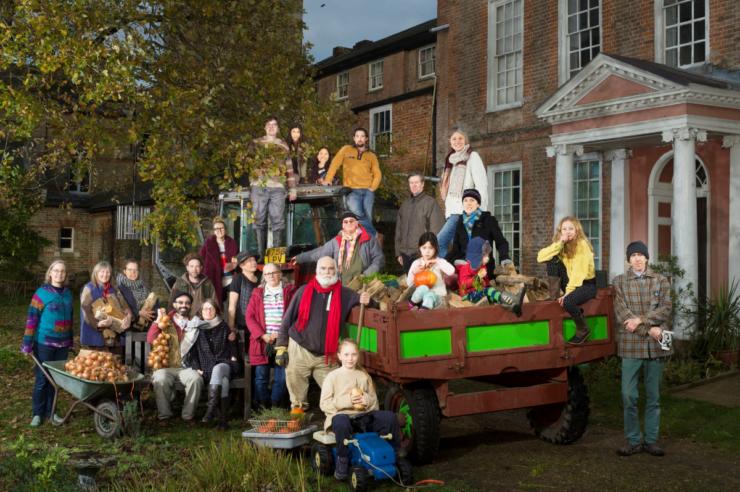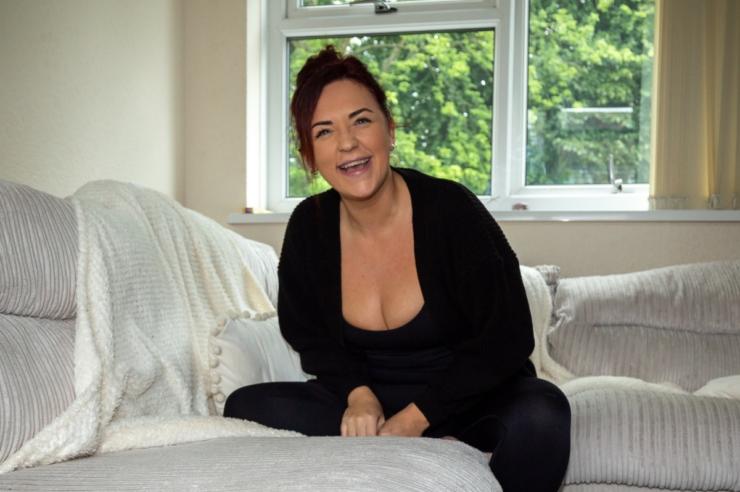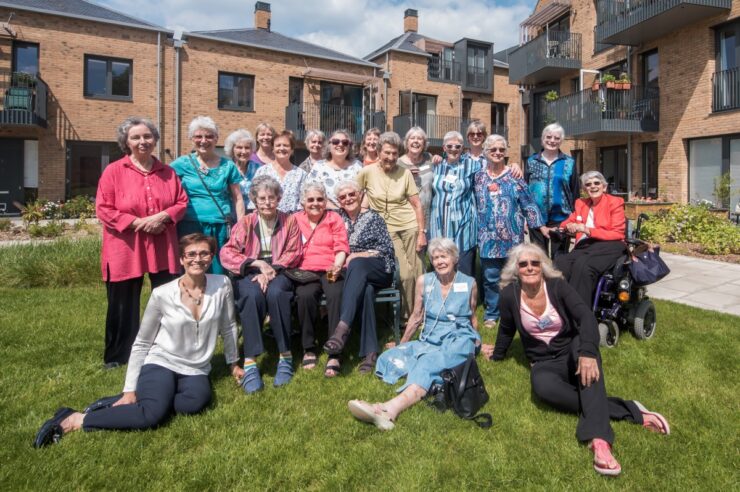Soaring rents, the ‘Airbnb effect’, and a looming election have put the UK’s housing crisis in the spotlight again. What levers can be pulled to address the problem?
The housing crisis looks set to be a key topic ahead of the next general election in the UK, amid soaring rents, rising interest rates, record waiting lists for council houses and growing alarm about the ‘Airbnbification’ of towns.
Successive administrations have failed to get a grip on the crisis. The current government’s levelling up bill is widely seen as a missed opportunity to deliver the kind of planning reforms that could have unlocked more affordable homes.
So, what solutions are out there?

The number of long-term empty homes has risen in every region of the UK this year, according to government data. It recorded 261,189 long-term vacant properties in 2023, up 12,000 compared to the previous year.
“It beggars belief that while children are growing up sharing beds in temporary accommodation, our nation has over a quarter of a million homes sitting empty,” said Rebecca Moore, director of Action on Empty Homes (AEH). “To say this is a national disgrace is a profound understatement.”
Homes sit vacant for various reasons, so there is no silver bullet to the problem. However, Wales and Scotland have national empty homes strategies to tackle the issue. England doesn’t.
“A new national empty homes programme is long overdue,” Moore says. “The government needs to step up to the plate and offer funding and incentives to get these homes back into use.” Doing so will bring other benefits, she adds. “Long-term empties are a huge missed opportunity to invest in green retrofit and create new jobs.”
Image: Peter Horrox/iStock

The ‘Airbnb effect’ is having a profound impact on the UK housing market, as landlords shun long-term leases for more lucrative, short-term holiday lets.
It’s a growing problem. A 2022 investigation by the BBC revealed that the number of holiday lets in England soared by 40% in the previous three years. An estimated 2.1m households in the UK now own at least one other property.
“Airbnbification – the process by which short-term Airbnb rentals overtake the housing market – has been linked to the depletion of local housing stocks, increased home prices, gentrification, and exclusionary displacement,” says Jack Portman, project support officer at Action on Empty Homes.
The Scottish government is flirting with proposals that could pave the way for council tax to be doubled on second homes. Bath is considering something similar. Meanwhile, Edinburgh (pictured) has joined a growing list of cities, such as Amsterdam and Barcelona, in regulating Airbnb.
“Barcelona and Amsterdam offer frameworks for regulating ‘Airbnbification’ that combine enforceable licensing quotas with surveillable limitations on how many days owners can rent their units,” says Portman. “Similar enforcement mechanisms may be of use as governing bodies across the UK consider how to stymie the spread of short-term rentals.”
Image: Jörg Angeli

Easier said than done, as successive governments will attest.
A good place to start would be to funnel more funding to planning departments hollowed out by years of cuts. “Planning permission is taking longer than ever,” says Bonnie Williams of the charity Housing Justice. “We haven’t invested effectively in our small planning departments that we cut during austerity.”
Housing charities have also called on the government to strengthen the Section 106 planning agreement, which theoretically obligates builders to incorporate social housing into their developments. “Private developers will often wiggle out of those agreements, which is hugely unhelpful when you look at the impact that has on the numbers of social homes being built,” says Williams.
Labour has pledged to strengthen Section 106. The million-dollar question is: where will the new homes go? Turning vacant retail units (of which there are many) into dwellings is mooted as one solution. It’s something the UK government is trying to make easier with its levelling up bill.
“For younger people and potentially older people with limited mobility, it’s actually a really good option because it means you’re close to amenities, public transport, and of course, it’s beneficial to the town because you have higher footfall again,” says Williams.
Image: Brad Weaver

The UK has form when it comes to building new towns from scratch, among them Milton Keynes, Basildon and Welwyn Garden City. It’s an idea that the Labour party is revisiting (not for the first time) amid growing backlash against the dormitory housing estates that are going up across the UK, often without adequate public transport infrastructure.
“We’re essentially building towns without communities or public transport at the moment,” says Williams. “And of course, when people move in without public transport, they have to move in with a car. We’re supposed to be moving away from car dependency.”
New towns will be costly to build, both from an economic and ecological point of view. Attempts to revive the idea have failed in the past. Nevertheless, Williams gives a cautious welcome to the proposal. “As much as I’m passionate about the infill sites, that’s not going to be the answer to the numbers that we need,” she says. “The fact that [Labour] is suggesting new towns, I think, is more exciting than [dormitory housing estates].”
Image: Bristol. Credit: Martyna Bober

There’s been a boom in interest in communal living, which can offer a solution to loneliness as well as a lack of affordable housing.
One such commune is Old Hall (pictured) in Sussex, England. Occupying a former manor house, it’s home to around 50 people who are largely self-sufficient. Food comes from their farm, which they work, water comes from a borehole, and their energy needs are mostly met by solar panels and a biomass boiler. Other things they need, such as extra food, toilet roll and cleaning supplies, are bought in bulk, with costs shared.
There are 15 children at Old Hall, which is brilliant, says resident Naomi Leake, because her daughter is a single child. “She loves being around other children,” says Leake. “She has friends aged five to 90 – it’s very intergenerational.”
Image: Pål Hansen
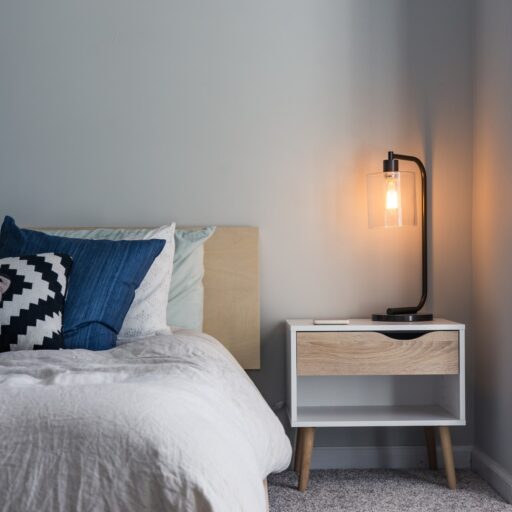
One idea gaining traction in policy circles is for a supported lodgings scheme. “This model would help people who may be at risk of not being able to pay their rent or mortgage to have, for example, £500 a month from a lodger, who would either be on benefits or in employment,” says Williams. “That would stop somebody having to go into emergency accommodation. We’re seeing new cohorts of people becoming homeless. People who are working, or young people leaving overcrowded houses. And this would be an option for them in the same way that people used to have lodgers.”
Homeowners would be trained and home checks would be conducted for safeguarding. “It would be a supportive relationship, so that [lodgers] are not isolated, which is one of the challenges with emergency accommodation.”
Image: Christopher Jolly
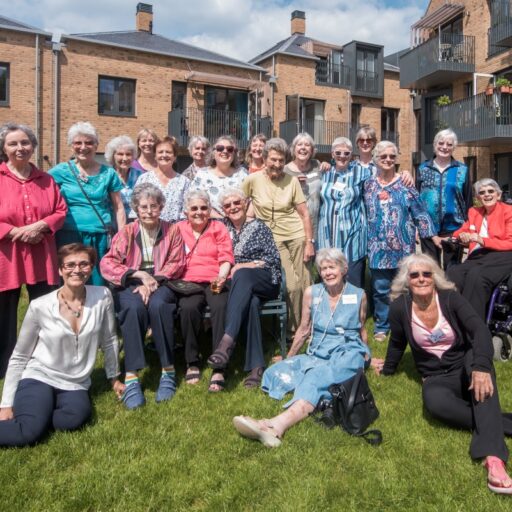
As our population ages, helping older people to downsize could free up a hefty chunk of stock. In fact, according to a 2015 report by the All-Party Parliamentary Group (APPG) on Housing and Care for Older People, 8m elderly people were looking to downsizing at the time of research. This, the APPG estimated, could free up 3.5m homes, mostly three or four-bedroom properties.
Moving elderly people together in co-housing communities brings other benefits, too. A joint study by Aston University and the ExtraCare Charitable Trust recorded a significant reduction in loneliness, anxiety and hospital visits among people who had moved into integrated homes for the elderly.
One such home is New Ground (pictured) in London. “It seems like a no-brainer that government and local councils take this model and think: ‘this is what we should be doing’,” resident Jude Tisdall tells Positive News.
Image: New Ground
Main image: Fas Khan
You’re the solution that Positive News needs
Our small, dedicated team is passionate about building a better alternative to the negative news media. And there’s never been a greater urgency to our mission.
But to invest in producing all the solutions journalism that the world is longing for, we need funding. And because we work in your interests – not those of a wealthy media mogul or corporate owner – we’re asking readers like you to get behind our team, by making a regular contribution as a Positive News supporter.
Give once from just £1, or join 1,400+ others who contribute an average of £3 or more per month.
Join our community today, and together, we’ll change the news for good.


